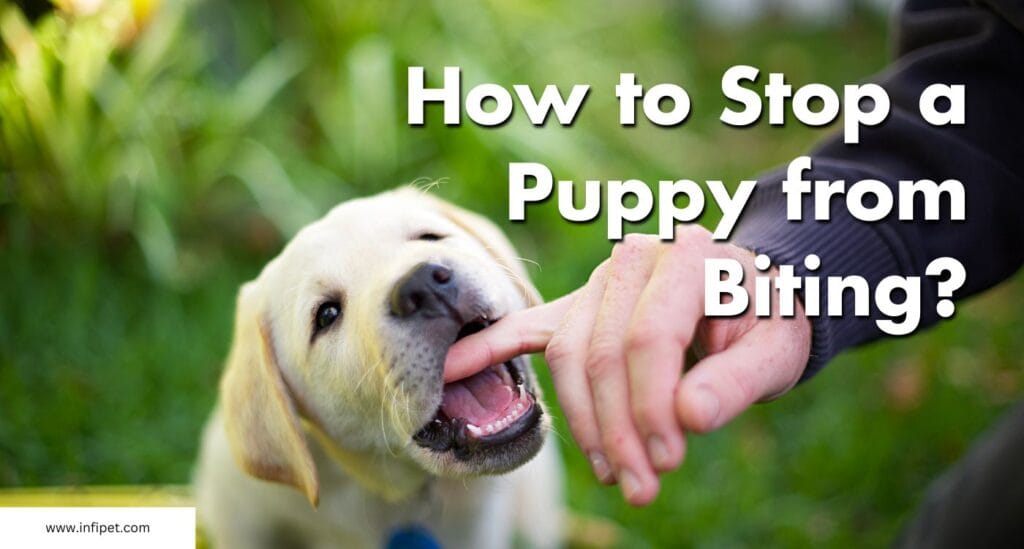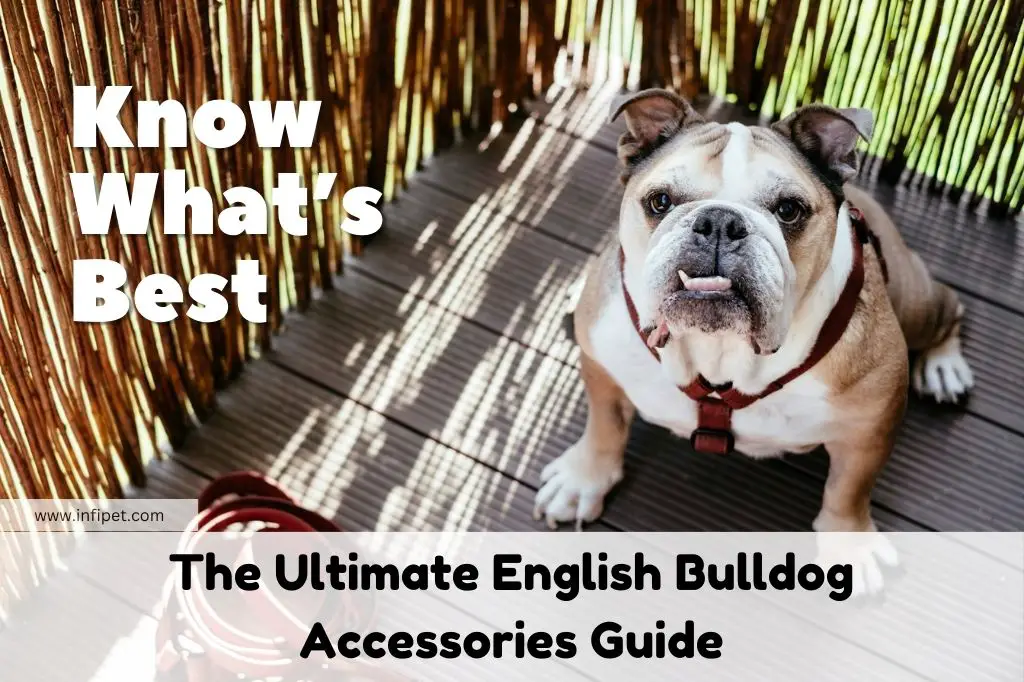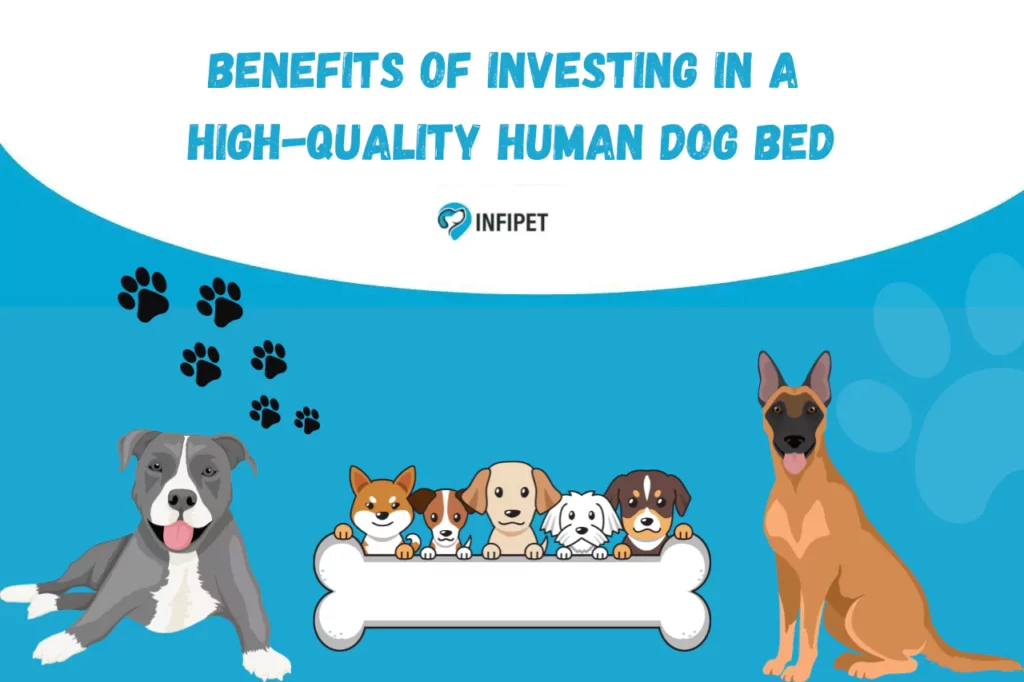Welcoming a new puppy into your home is an exciting experience, but dealing with biting can be a challenge. Understanding why puppies bite and how to teach them not to is essential for a happy and safe home. This article will guide you through effective techniques and tips to stop your puppy from biting.
Overview
- Understanding why puppies bite helps address the behavior effectively.
- Early training with consistent commands is crucial for setting boundaries.
- Teaching bite inhibition through gentle corrections can reduce biting.
- Redirecting biting behavior with chew toys and interactive play is effective.
- Positive reinforcement and rewarding good behavior encourage better habits.
Table of contents
- Overview
- Understanding Why Puppies Bite
- The Importance of Early Training
- Teaching Bite Inhibition
- Redirecting Biting Behavior
- Using Positive Reinforcement
- Preventing Overexcitement
- Training Alternative Behaviors
- Common Mistakes to Avoid
- When to Seek Professional Help
- Socializing Your Puppy
- Creating a Safe Environment
- Conclusion
- Frequently Asked Questions
- Why do puppies bite so much?
- When should I start training my puppy not to bite?
- What is the “ouch” technique?
- Are chew toys helpful for stopping biting?
- What should I do if my puppy gets too excited and bites?
- Is it okay to punish my puppy for biting?
- When should I seek help from a professional trainer?
- How can I socialize my puppy safely?
Understanding Why Puppies Bite
Puppies bite for several reasons, and understanding these can help you address the behavior effectively. Learning what they can chew or bite and what they can’t is known as mouthing. This usually involves your puppy nibbling and biting something – often your hands!
Natural Instincts and Teething
Puppies have a natural instinct to bite, especially when they are teething. Their puppy teeth are growing, and biting helps to soothe the discomfort. This is a normal part of their development and not a sign of aggression.
Exploration and Play
Biting is also a way for puppies to explore their world. They use their mouths to learn about their environment, much like human babies do. During playtime, they might bite to interact with you or other dogs. This behavior is usually not aggressive but rather a form of play.
Attention-Seeking Behavior
Sometimes, a puppy will bite to get your attention. If your puppy keeps biting you, it might be their way of saying they want to play or need something. It’s important to recognize this behavior and address it appropriately to stop puppy biting.
Understanding why your puppy bites is the first step in addressing the behavior. Knowing the reasons can help you find the best techniques to stop puppy biting and ensure a happy, well-behaved pet.
The Importance of Early Training
Early training is crucial for a puppy’s development and helps prevent future behavioral issues. Setting boundaries from the start teaches your puppy what is acceptable and what is not. This helps in creating a harmonious living environment for both the puppy and the owner.
Setting Boundaries
Establishing clear rules and limits is essential. Puppies need to understand what behaviors are allowed and which ones are not. This can be done through consistent training and reinforcement.
Consistency in Commands
Using the same commands consistently helps your puppy learn faster. If everyone in the household uses the same words and actions, the puppy will not get confused. This consistency is key to effective training.
Positive Reinforcement
Positive reinforcement involves rewarding your puppy for good behavior. This can be done with treats, praise, or playtime. The goal is to encourage the puppy to repeat the good behavior. Positive reinforcements are a powerful tool in training and can make the process enjoyable for both you and your puppy.
Early training is crucial for intelligence and health. Avoid overtraining to prevent bad behaviors.
Teaching Bite Inhibition
Teaching your dog appropriate behavior like bite inhibition should start early, as it’s much harder (though not by any means impossible) to modify the behavior later on. Discipline is key in this process, and using gentle corrections can be very effective. When your puppy bites, say “ouch!” or “yip” in a high-pitched voice. This mimics the sound other puppies make and helps your puppy understand that biting hurts.
The “Ouch” Technique is a simple yet powerful method. When your puppy bites too hard, let out a sharp “ouch” and stop playing immediately. This teaches your puppy that biting means “game over.” Over time, your puppy will learn to control the pressure of their bite.
Gradual Reduction of Pressure is another important step. Start by allowing gentle mouthing and gradually decrease the pressure you tolerate. Reward your puppy when they use a soft mouth. This helps them understand the difference between a gentle and a hard bite.
Consistency is crucial. Always respond the same way to bites to help your puppy learn faster.
Games to play for puppies and dogs to expedite learning, bite inhibition, and how to redirect bites can also be very helpful. Incorporate these techniques into your daily routine to see the best results.
Redirecting Biting Behavior
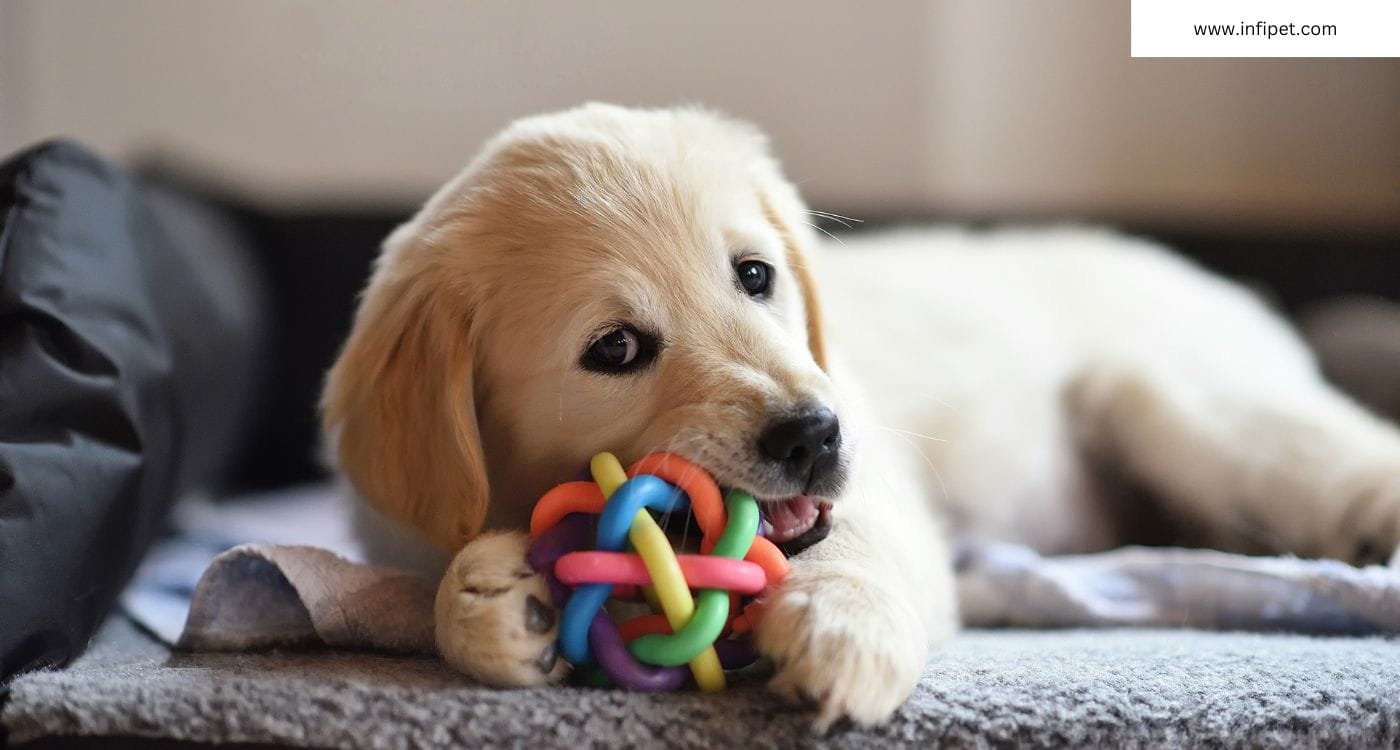
Redirecting your puppy’s biting behavior is crucial for their development. Providing chew toys can help satisfy their natural urge to chew. When your puppy starts biting, redirect their attention to a chew toy or a bone. This teaches them what’s appropriate to bite and helps them learn boundaries.
Encouraging appropriate play is another effective technique. If your puppy bites too hard during play, stop the game immediately. This way, they learn that biting too hard means playtime ends. Since you are not a puppy, redirecting him to a toy is a good way of managing this behavior.
Using interactive toys can also be beneficial. These toys keep your puppy engaged and mentally stimulated, reducing the chances of them biting out of boredom. Interactive toys can include puzzle feeders or toys that dispense treats when played with.
Remember, consistency in training is key. Always redirect your puppy to a toy when they start biting, and reward them for chewing on appropriate items.
Using Positive Reinforcement
Rewarding Good Behavior
Positive reinforcement is a powerful tool in training your puppy. When your puppy behaves well, reward them with praise, treats, or affection. This encourages them to repeat the good behavior. For example, if your puppy plays without biting, give them a treat and some praise.
Timing of Rewards
The timing of rewards is crucial. Make sure to give the reward immediately after the good behavior. This helps your puppy understand what they are being rewarded for. If you wait too long, they might not make the connection between the behavior and the reward.
Types of Rewards
There are different types of rewards you can use. Treats are a popular choice, but you can also use toys or affection. Find out what your puppy likes the most and use that as a reward. This will make the training more effective and enjoyable for your puppy.
Using positive reinforcement consistently can make a big difference in your puppy’s behavior. It helps them learn what is expected and makes training a positive experience for both of you.
Preventing Overexcitement
Calm Play Sessions
Keeping play sessions calm is key to preventing overexcitement in puppies. Short, controlled playtimes help manage their energy levels. If your puppy starts to get too excited, it’s important to bend your arm away from them at the elbow to signal that playtime is over.
Recognizing Overstimulation
Recognizing when your puppy is overstimulated can prevent unwanted behaviors. Signs of overstimulation include excessive barking, jumping, or biting. When you notice these signs, it’s time to take a break and let your puppy calm down.
Scheduled Breaks
Regular breaks during playtime can help keep your puppy’s excitement in check. Schedule short breaks to allow your puppy to relax and reset. This can be especially helpful for breeds that are prone to hyperactivity, like Boston Terriers. By managing their energy, you can help prevent anxiety and stress in your puppy.
Consistent breaks and calm play sessions are essential for managing a puppy’s energy and preventing overexcitement.
Training Alternative Behaviors
Teaching “Sit” and “Stay”
One of the first things you can teach your puppy is to sit and stay. These commands help your puppy learn self-control. Start by asking your puppy to sit, then gradually increase the time they stay seated. Reward them with a treat when they succeed.
Encouraging “Lick” or “Kisses”
Instead of letting your puppy bite, encourage them to give you licks or kisses. This is a gentle way to show affection and can be a great alternative to biting. Use treats to reward your puppy when they lick instead of bite.
Using Commands to Redirect
When your puppy starts to bite, use a command to redirect their attention. Commands like “leave it” or “no bite” can be very effective. Make sure to reward your puppy when they follow the command and stop biting.
Training your puppy to follow these alternative behaviors can make a big difference in their overall behavior. It helps them understand what is expected and makes them more enjoyable to be around.
Common Mistakes to Avoid
Yelping or Screaming
When your puppy bites, it might be tempting to yelp or scream. However, this can actually make the situation worse. Puppies often see this as a form of play and may become even more excited. Instead, stay calm and use a firm “no” to correct the behavior.
Physical Punishment
Using physical punishment to stop your puppy from biting is not only ineffective but can also lead to fear and aggression. It’s important to focus on teaching the behavior you want from your dog rather than punishing the unwanted behavior. Positive reinforcement is a much more effective approach.
Inconsistent Responses
Consistency is key when training your puppy. If you sometimes allow biting and other times punish it, your puppy will become confused. Make sure everyone in the household is on the same page and responds to biting in the same way every time.
Remember, training a puppy takes time and patience. Avoiding these common mistakes can help you raise a well-behaved and happy dog.
When to Seek Professional Help
Recognizing Persistent Issues
If your puppy’s biting behavior continues despite your best efforts, it might be time to seek professional help. Catching behavioral problems early can prevent them from becoming more serious. Look for signs like excessive aggression or fear-related biting.
Finding a Qualified Trainer
When choosing a trainer, ensure they have experience with puppies and use positive reinforcement techniques. A good trainer can provide personalized advice and help you address specific issues effectively.
Behavioral Therapy Options
In some cases, a professional might suggest behavioral therapy. This can be especially helpful for puppies with deep-seated issues. Desensitization techniques and other methods can be used to modify your puppy’s behavior.
If you’re unsure how to address the issue effectively, don’t hesitate to seek professional help. It’s better to be proactive and get assistance early on.
Socializing Your Puppy
Controlled Social Interactions
Introducing your puppy to new people and animals in a controlled way is key. Start with calm environments and gradually increase the level of activity. This helps your puppy feel safe and confident. As mentioned above, you can invite people to your home to meet your new puppy. Have them crouch down to say hello and be calm around your dog. If your dog is nervous, give them space and time to adjust.
Exposure to Different Environments
Expose your puppy to various settings, like parks, streets, and pet-friendly stores. This helps them get used to different sights, sounds, and smells. The key to successful socialization experiences is to ensure that each one is a positive one for your puppy. Keep the outings short and fun to avoid overwhelming your puppy.
Supervised Playdates
Arrange playdates with other puppies or well-behaved adult dogs. Make sure these interactions are supervised to prevent any rough play or negative experiences. Look for signs of friendliness and anxiety in your puppy. If your puppy seems stressed, it’s okay to end the playdate early. The goal is to form positive associations with other dogs and people.
Socializing your puppy is crucial for their development. It helps them grow into a well-behaved and confident dog. Take steps towards socializing your puppy early to avoid behavioral issues later on.
Creating a Safe Environment
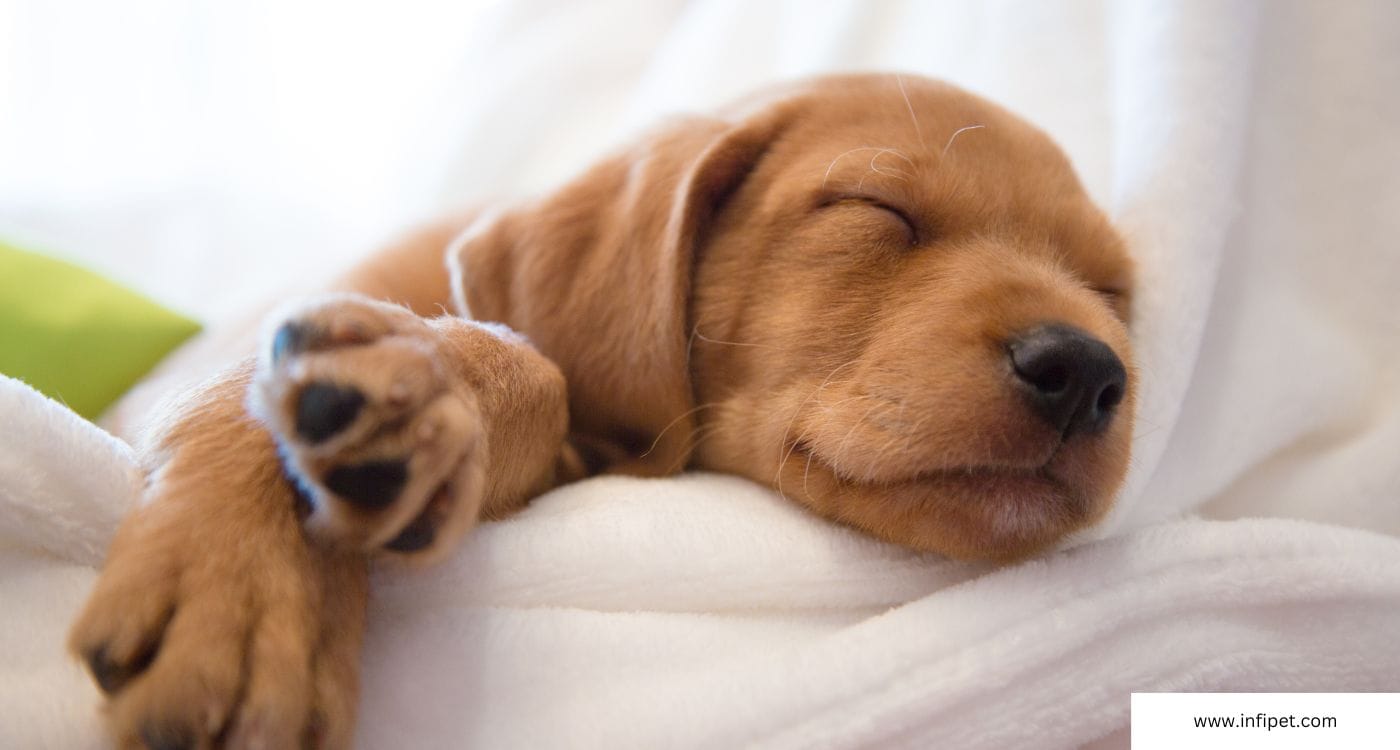
Ensuring your puppy has a safe environment is crucial for their well-being and helps prevent unwanted biting behaviors. Puppy-proofing your home is the first step. Remove any items that could be harmful or tempting for your puppy to chew on. This includes electrical cords, small objects, and toxic plants. By keeping these out of reach, you reduce the risk of accidents and destructive behavior.
Creating safe spaces for downtime is equally important. Designate a quiet area where your puppy can relax and feel secure. This could be a crate or a specific room. Make sure this space has positive associations, like comfortable bedding and favorite toys. Remember, if using a crate, it should never be used for punishment.
Monitoring interactions with children is essential to prevent sudden bites. Teach kids how to approach and handle the puppy gently. Supervised play ensures that both the puppy and children are safe and happy.
A big part of stopping your puppy from engaging in destructive behavior is keeping them in a contained and safe area where you can monitor them, and they’re not exposed to potential hazards.
Conclusion
Training a puppy to stop biting can be a challenge, but with patience and the right techniques, it is definitely achievable. Remember, it’s important to focus on teaching your puppy what you want them to do, rather than just punishing unwanted behavior. Use positive reinforcement to encourage good habits and provide plenty of appropriate toys for them to chew on. If one method doesn’t work, don’t get discouraged—try another approach. Every puppy is different, and what works for one might not work for another. Stick with it, and soon you’ll have a well-behaved puppy who knows how to play nicely.
Frequently Asked Questions
Why do puppies bite so much?
Puppies bite because it’s a natural instinct. They also bite to explore the world and during teething.
When should I start training my puppy not to bite?
You should start training your puppy as soon as you bring them home. Early training helps set boundaries and teaches good behavior.
What is the “ouch” technique?
The “ouch” technique involves saying “ouch” in a high-pitched voice when your puppy bites you. This helps them understand that biting hurts.
Are chew toys helpful for stopping biting?
Yes, providing chew toys can help redirect your puppy’s biting behavior to something more appropriate.
What should I do if my puppy gets too excited and bites?
If your puppy gets too excited and bites, try to calm them down with gentle play and take breaks to prevent overstimulation.
Is it okay to punish my puppy for biting?
No, physical punishment is not recommended. Instead, use positive reinforcement to teach your puppy good behavior.
When should I seek help from a professional trainer?
If your puppy’s biting behavior persists despite your efforts, it may be time to seek help from a qualified trainer.
How can I socialize my puppy safely?
You can socialize your puppy by arranging controlled interactions with other dogs and exposing them to different environments under supervision.

